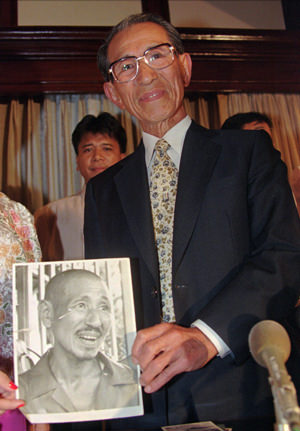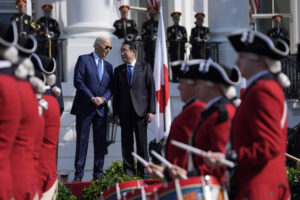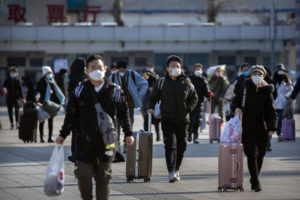The WWII Soldier Who Refused to Believe the War Was Over Dies at 91
One Japanese soldier remained at his post in the Philippines for 29 years in denial that the Second World War had ended. In his country, he is considered a hero.
One Japanese soldier remained at his post for 29 years in denial that World War II had ended. For decades, Lt. Hiroo Onoda attacked Filipinos, convinced he was doing his duty as his country believed he was already dead. Discovered by a student in 1974, Onoda was retrieved and pardoned upon return for “crimes committed while he thought he was at war,” including the killing of 30 islanders who were caught in “skirmishes” against the officer. In Japan, Hiroo is considered a hero.
The New York Times:
Hiroo Onoda, an Imperial Japanese Army officer who remained at his jungle post on an island in the Philippines for 29 years, refusing to believe that World War II was over, and returned to a hero’s welcome in the all but unrecognizable Japan of 1974, died on Thursday in Tokyo. He was 91.
His death, at a hospital there, was announced by the Japanese government.
Caught in a time warp, Mr. Onoda, a second lieutenant, was one of the war’s last holdouts: a soldier who believed that the emperor was a deity and the war a sacred mission; who survived on bananas and coconuts and sometimes killed villagers he assumed were enemies; who finally went home to the lotus land of paper and wood which turned out to be a futuristic world of skyscrapers, television, jet planes and pollution and atomic destruction.
Japanese history and literature are replete with heroes who have remained loyal to a cause, especially if it is lost or hopeless, and Lieutenant Onoda, a small, wiry man of dignified manner and military bearing, seemed to many like a samurai of old, ultimately offering his sword as a gesture of surrender to President Ferdinand E. Marcos of the Philippines, who returned it to him.
And his homecoming, with roaring crowds, celebratory parades and speeches by public officials, stirred his nation with a pride that many Japanese had found lacking in the postwar years of rising prosperity and materialism. His ordeal of deprivation may have seemed a pointless waste to much of the world, but in Japan it was a moving reminder of the redemptive qualities of duty and perseverance.
—Posted by Natasha Hakimi
Your support matters…Independent journalism is under threat and overshadowed by heavily funded mainstream media.
You can help level the playing field. Become a member.
Your tax-deductible contribution keeps us digging beneath the headlines to give you thought-provoking, investigative reporting and analysis that unearths what's really happening- without compromise.
Give today to support our courageous, independent journalists.






You need to be a supporter to comment.
There are currently no responses to this article.
Be the first to respond.